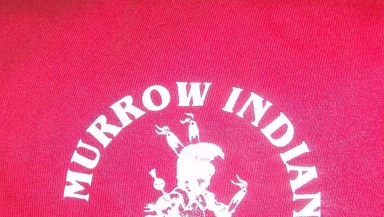
It's difficult to see how things could have turned out worse for the Murrow Indian Children's Home in Muskogee, Oklahoma.
The home cares for disadvantaged Native American children and is strapped for cash. But when Matt Wilbourn tried to give it $100, the money was turned down. He is an atheist, and filled in a form with his donation that asked if there was a person or organisation the donor wanted to honour. He named the Muskogee Atheist Community, founded by him and his wife Keli. The home turned down the donation, saying accepting it would be "contrary to those Biblical principles upon which we at Murrow stand".
Wilbourn is not a man to give up easily. He first upped the amount to $250, then started a GoFundMe campaign for the home to see how far he could go. So far it's up to nearly $23,000, donated mainly – it appears – by atheists furious at the charity's line, but also by Christians who are, if anything, even angrier. The charity even had to close its Facebook page to comments, such was the vitriol.
Wilbourn has decided to give all but $5,000 of it to Camp Quest Oklahoma, a residential summer camp for the children of atheist parents – not, actually, an uncontroversial move, since it wasn't what the money was given for. The rest he'll donate anonymously to Murrow and see what happens; if they still won't accept it he'll give it to a church for them to pass on.
It has to be acknowledged that this must have been a horrible experience for the charity's leaders, who can't in their wildest nightmares have expected this sort of exposure. We can feel for them, but we have to be able to critique them too.
Let's admit that in situations like this there might be some game-playing here. There exists a kind of atheist who just loves to needle Christians, and the thought of an atheist organisation's name in such a resolutely Christian foundation might have been very appealing – thought I'm told Mr Wilbourn is not one of these.
But the charity's response has played into the atheists' hands, in setting up an opposition between them when none was needed. They're on the same side. They want to help children. If the atheists also want to play mind-games (and that's an 'if'), so what? Followers of Christ ought to be able to rise above such things. Many of the stories of how Jesus interacted with the religious leaders of his time are about just that – how he outsmarted people who tried to make him look foolish.
As it is, it's the Christians who look not only foolish, but bigoted, small-minded and cruel. They're presented as making the children suffer for their own mistaken principles. And they are mistaken.
Jesus told a story about a priest and a Levite who saw a man who'd been beaten by robbers and was lying by the side of the road. They each passed by: he might have been dead, and touching him would have made them ritually unclean. It was the Samaritan, who wasn't troubled by this, who was a neighbour to him.
The point of the story is that it was their religious principles that stopped them doing the right thing. And that's what happened in the Oklahoma case: they were not neighbours to the children they served because they had the wrong idea of what faithfulness to Christ really means. We are not infected by other people's sinfulness. We infect them with grace.
According to General William Booth, the saintly founder of the Salvation Army, there was no such thing as 'dirty money'. On one occasion he accepted a donation from a man in high society known to be an atheist. He was criticised for it, but replied: "We will wash it in the tears of the widows and orphans, and lay it on the altar of humanity."
On another occasion he was accused of taking 'tainted money' and pithily replied, "'Tain't enough."
It's too late for the Murrow Indian Children's Home to come out of this episode unscathed. But it could still redeem itself by acknowledging it made a mistake and taking the money – and washing it in the tears of the widows and orphans, and laying it on the altar of humanity.
Follow Mark Woods on Twitter: @RevMarkWoods













